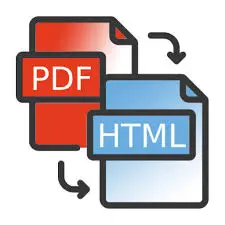
Convert PDF to HTML: A Seamless Way to Go from Static Documents to Web Pages
In today’s digital-first world, content needs to be flexible, responsive, and easily accessible across platforms. One of the common challenges faced by professionals, developers, and content creators is converting static PDF documents into dynamic, web-friendly formats. That’s where a PDF-to-HTML converter becomes an essential tool.
Whether you’re a blogger, web developer, or document publisher, the ability to convert PDF to HTML can save hours of manual coding and improve your website’s accessibility and user experience. In this article, we will explore what PDF to HTML conversion means, why it’s important, and how you can do it quickly and efficiently.
What is PDF to HTML conversion?
PDF to HTML refers to the process of converting a PDF (Portable Document Format) file into HTML (HyperText Markup Language), which is the standard markup language used to create web pages. PDF files are designed for consistent formatting and printing across devices, while HTML files are built for flexibility and interaction in web environments.
When you convert a PDF to HTML, you’re essentially extracting the content—text, images, links, and layout—and reformatting it in HTML code. This allows the content to be displayed and styled dynamically on websites.
Why Convert PDF to HTML?
Here are several reasons why converting PDF to HTML is beneficial:
- Web Compatibility HTML is the backbone of the web. Converting PDFs to HTML allows you to display the content directly on web pages without requiring users to download a file or open a PDF reader.
- Responsive Design Modern HTML can adapt to various screen sizes—desktops, tablets, and smartphones—ensuring your content looks great everywhere. In contrast, PDFs can be rigid and difficult to navigate on mobile devices.
- Improved SEO Search engines can crawl and index HTML content more effectively than PDFs. By converting PDF to HTML, your content becomes more discoverable online, boosting your site’s visibility.
- Faster Loading Time HTML pages generally load faster than embedded or downloadable PDFs. Users get instant access to content without waiting for a PDF file to open.
- Editable and customizable HTML code is easy to edit and style using CSS and JavaScript. Once you’ve converted your PDF to HTML, you can customize the layout, add interactive elements, and integrate analytics or other web-based tools.
Common Use Cases
Converting brochures, flyers, and reports into web pages
Publishing academic papers or papers on websites
Sharing user manuals and product guides in browser-friendly formats
Embedding formatted documents into blogs or knowledge bases
Tools to Convert PDF to HTML
There are many tools available—both online and offline—that help convert PDF to HTML. Some are simple drag-and-drop converters, while others provide advanced options for layout preservation, CSS extraction, and image embedding.
Features to look for in a good PDF-to-HTML tool include
Accurate text and layout conversion
Support for images, tables, and hyperlinks
Responsive HTML output
Clean, editable code
Copy to clipboard or download functionality
For those looking for a lightweight, browser-based solution, a front-end-only tool using HTML, Tailwind CSS, and JavaScript can simulate the conversion and provide a ready-to-use HTML template. While this approach may not fully render complex PDFs, it’s great for basic formatting and quick publishing.
Important Considerations
Keep in mind that not all conversions are perfect. Complex layouts, embedded fonts, or multi-column designs may require manual tweaking after conversion. It’s a good idea to test your HTML output across multiple browsers and devices to ensure consistency.
Conclusion Converting is a smart way to bring static documents into the dynamic world of the web. Whether you need better SEO, faster access, or mobile responsiveness, this transformation ensures your content remains relevant and user-friendly.
With the right tools and techniques, you can easily convert PDF to HTML and take full advantage of the web’s capabilities. Try using an intuitive PDF to HTML converter today and unlock the full potential of your documents!